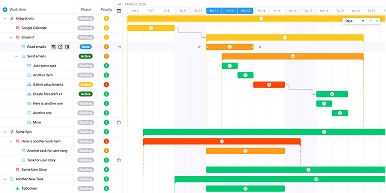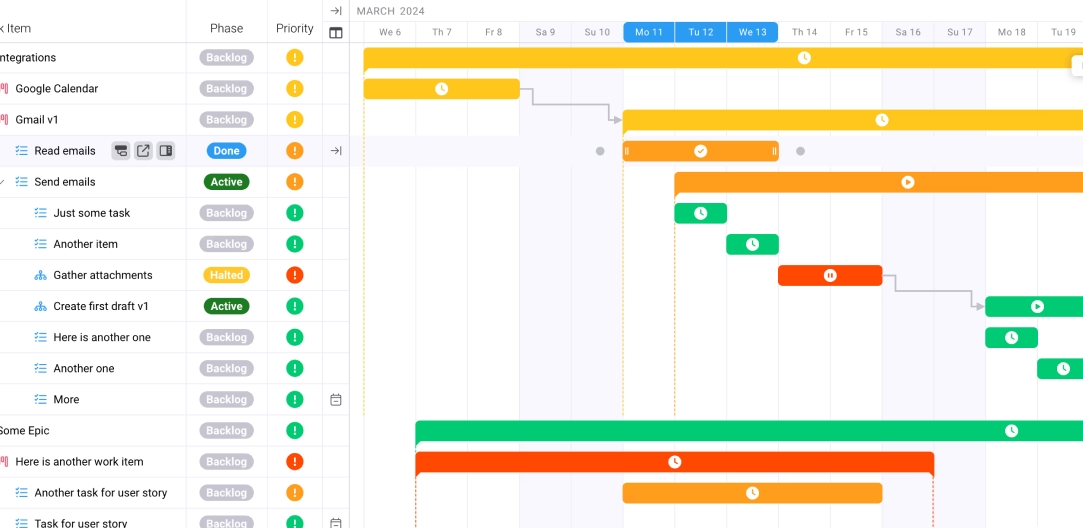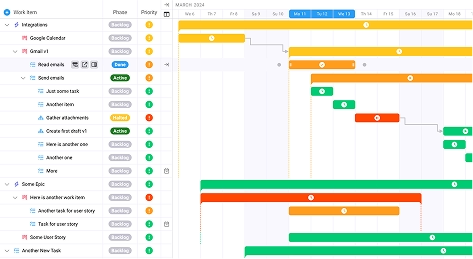
Top 5 Accelo Alternatives for Professional Services and Agencies
Key takeaways:
While countless agencies struggle with outdated software systems, the global professional services automation software market is expected to reach USD 25.25 billion by 2030, growing at a CAGR of 11.9%—a clear indicator that forward-thinking firms are actively seeking better solutions. If you're researching Accelo alternatives for your professional services firm or agency, you're already ahead of the curve. The challenge isn't whether to upgrade your work management platform—it's choosing the right work management solution that will transform your operations and drive sustainable growth.
The Current Challenge: Why Agencies Are Moving Beyond Traditional PSA Tools
The professional services landscape has fundamentally shifted in 2024. Nearly 70% of respondents cited new business sales as their main challenge, with only 13% describing their current pipeline as healthy, creating unprecedented pressure on agencies to optimize their operations. Meanwhile, professional services firms routinely face cash flow difficulties due to the typical "time-based" model that can make revenue streams unpredictable.
The root of these challenges often lies in fragmented systems and poor project visibility. Some of the main challenges are providing project visibility, managing scope creep, and establishing effective client-agency communications. When agencies can't effectively track time, manage resources, or deliver projects on schedule, every aspect of their business suffers.
Perhaps most concerning is the startling project failure rate. Less than one-third of all projects are completed successfully on time and on budget, making it clear that traditional approaches to project management simply aren't sufficient for today's complex agency environment.
The technology gap is equally troubling. Among leaders in the sector, 60% say that technology updates are needed to make substantial improvements in resource management, yet many agencies continue operating with systems that can't meet their evolving needs. This disconnect between need and capability is driving the surge in demand for comprehensive work management platforms.
The Strategic Framework: What Modern Agencies Need in 2025
The days of cobbling together multiple point solutions are over. Today's successful agencies require integrated platforms that combine the essential functions of project management, time tracking, resource planning, billing, and client portals into a seamless ecosystem.
The strategic framework for evaluating Accelo alternatives must consider five critical dimensions:
Operational Efficiency: Accurate billable hours improve client satisfaction and business reputation while calculating the time and resources needed for a project is simplified when agencies have the right systems in place.
Financial Visibility: With just over half of agency leaders have reported that they've experienced notable challenges due to inflation, having real-time financial insights and automated billing becomes crucial for maintaining profitability.
Scalability: Agencies need work management platforms that can scale with their growing complexity and client demands, ensuring that today's solution won't become tomorrow's bottleneck.
Integration Capabilities: Modern agencies use numerous specialized tools. The ideal platform must seamlessly integrate with existing tech stacks rather than forcing wholesale system replacements.
User Adoption: Even the most feature-rich platform fails if teams don't embrace it. The best solutions balance power with intuitive design to ensure organization-wide adoption.
Implementation Tactics: The Top 5 Accelo Alternatives
Based on comprehensive analysis of market leaders, user feedback, and feature capabilities, here are the five best Accelo alternatives for professional services and agencies:
1. Ravetree: The Comprehensive All-in-One Solution
Ravetree stands out as the most comprehensive alternative to Accelo, purpose-built specifically for professional services organizations. Unlike generic project management tools, Ravetree combine project management, time tracking, and billing to deliver superior results for agencies.
Key Strengths:
- Native integration of project management, time tracking, resource planning, CRM, and billing
- Advanced project templates and workflow automation
- Comprehensive client portal functionality
- Real-time financial reporting and budget tracking
- Flexible resource allocation and capacity planning tools
- Custom fields and reporting capabilities
Best For: Mid-market agencies (25-500 employees) requiring a complete business management platform that can replace multiple point solutions while providing enterprise-level functionality.
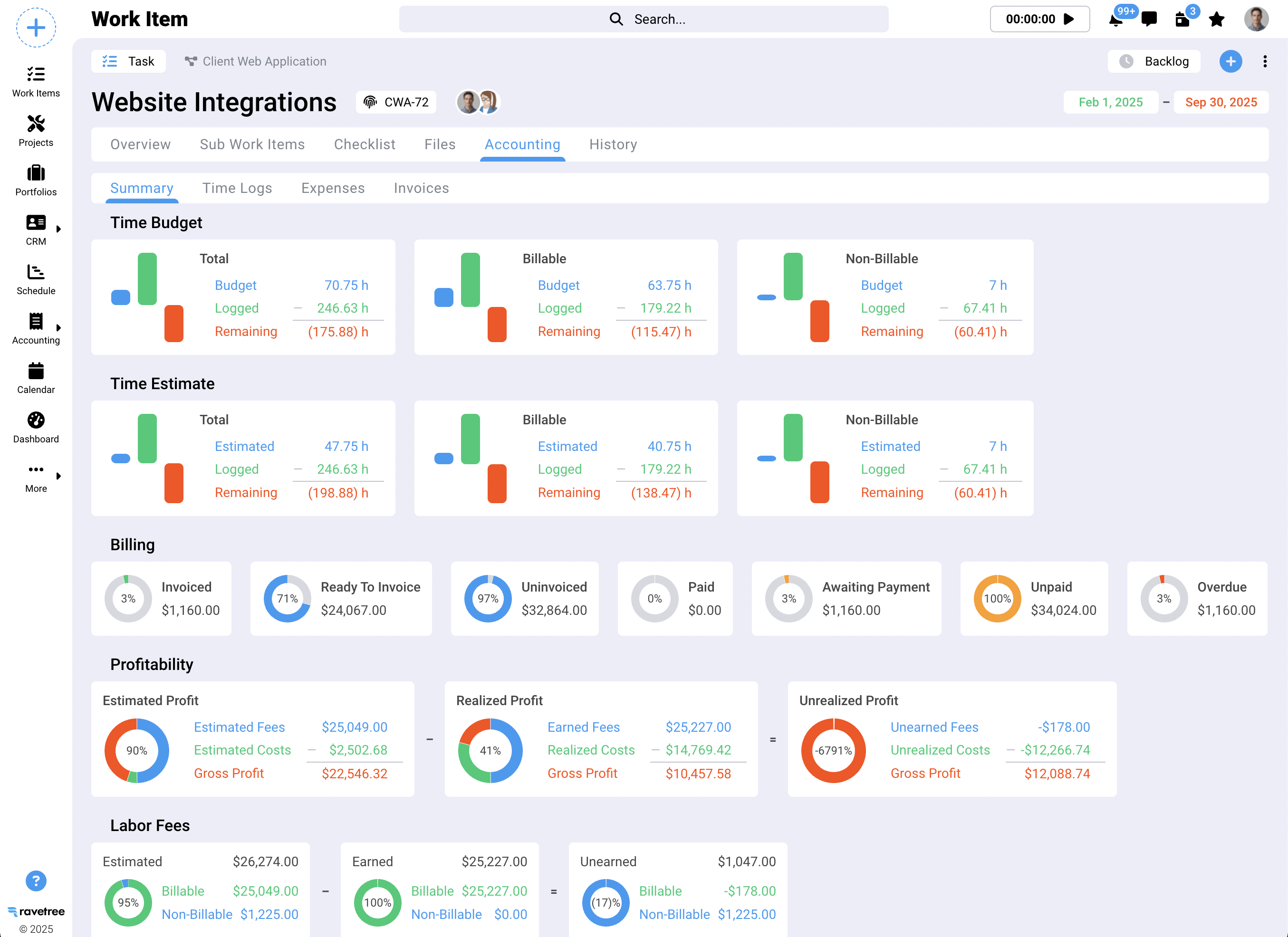
2. Scoro: The Business Intelligence Powerhouse
Scoro positions itself as a comprehensive business management solution with particularly strong reporting and analytics capabilities. Top project management platforms for digital agencies in 2025 must provide comprehensive solutions for complex project workflows, and Scoro delivers advanced business intelligence features.
Key Strengths:
- Advanced reporting and analytics dashboard
- Comprehensive project and portfolio management
- Integrated CRM with sales pipeline management
- Financial management and billing automation
- Team collaboration and communication tools
- Custom KPI tracking and performance metrics
Best For: Data-driven agencies that prioritize advanced analytics and custom reporting capabilities alongside core project management functionality.
Key Weaknesses:
- Missing features
- Lengthy implementation time
- Complexity can make it overwhelming
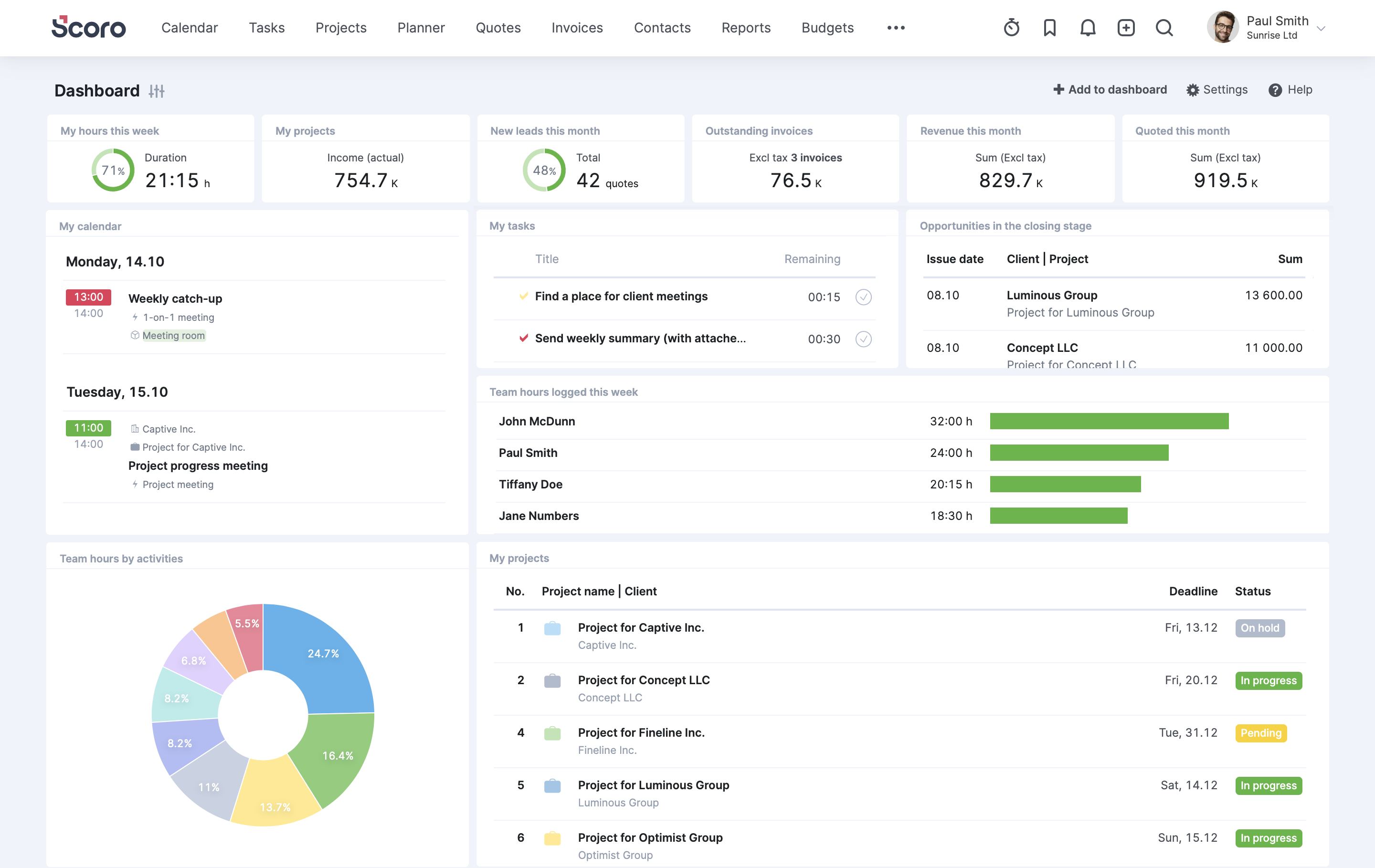
3. Kantata: The Enterprise-Grade Solution
Formerly known as Mavenlink, Kantata focuses on serving larger professional services organizations with complex operational requirements. The platform excels in areas requiring sophisticated resource management and financial controls.
Key Strengths:
- Advanced resource allocation and capacity planning
- Comprehensive time tracking with mobile capabilities
- Robust project accounting and revenue recognition
- Enterprise-level security and compliance features
- Sophisticated project budgeting and forecasting
- Integration with major ERP and accounting systems
Best For: Large agencies and consulting firms (500+ employees) requiring enterprise-grade functionality, advanced compliance features, and sophisticated financial management.
Key Weaknesses:
- Steep learning curve
- Not very intuitive
- Overly complex
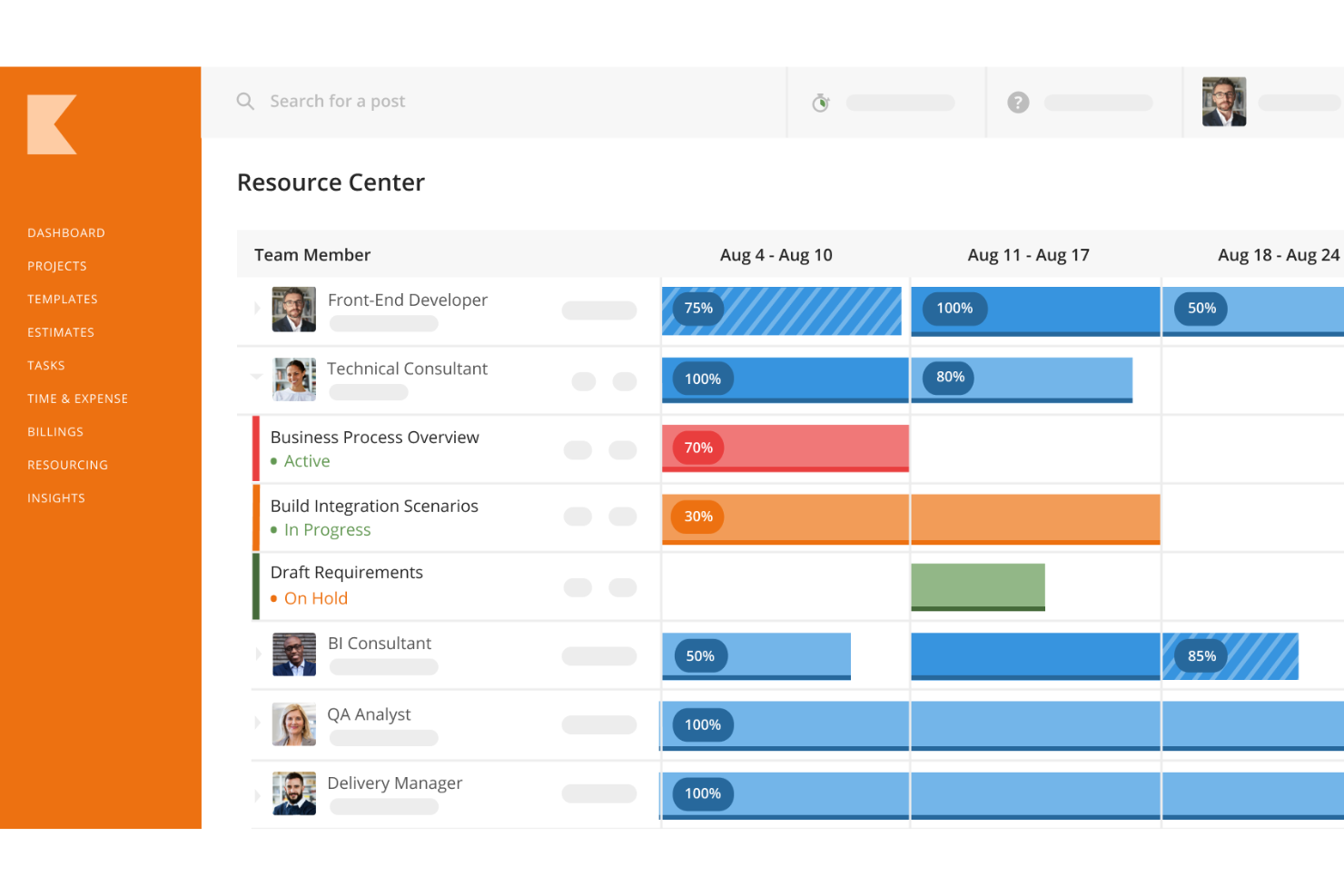
4. BigTime: The Time-Centric Approach
BigTime specializes in time tracking and billing optimization, making it particularly attractive for agencies where billable hour accuracy is paramount. The platform has evolved to include comprehensive project management capabilities while maintaining its time-tracking heritage.
Key Strengths:
- Exceptional time tracking accuracy and ease of use
- Advanced billing and invoicing automation
- Mobile time entry with offline capabilities
- Project budgeting and expense management
- Client portal with real-time project visibility
- Integration with popular accounting systems
Best For: Professional services firms where precise time tracking and billing optimization are primary concerns, particularly legal, accounting, and consulting practices.
Key Weaknesses:
- Difficult to use
- Some users report lots of bugs
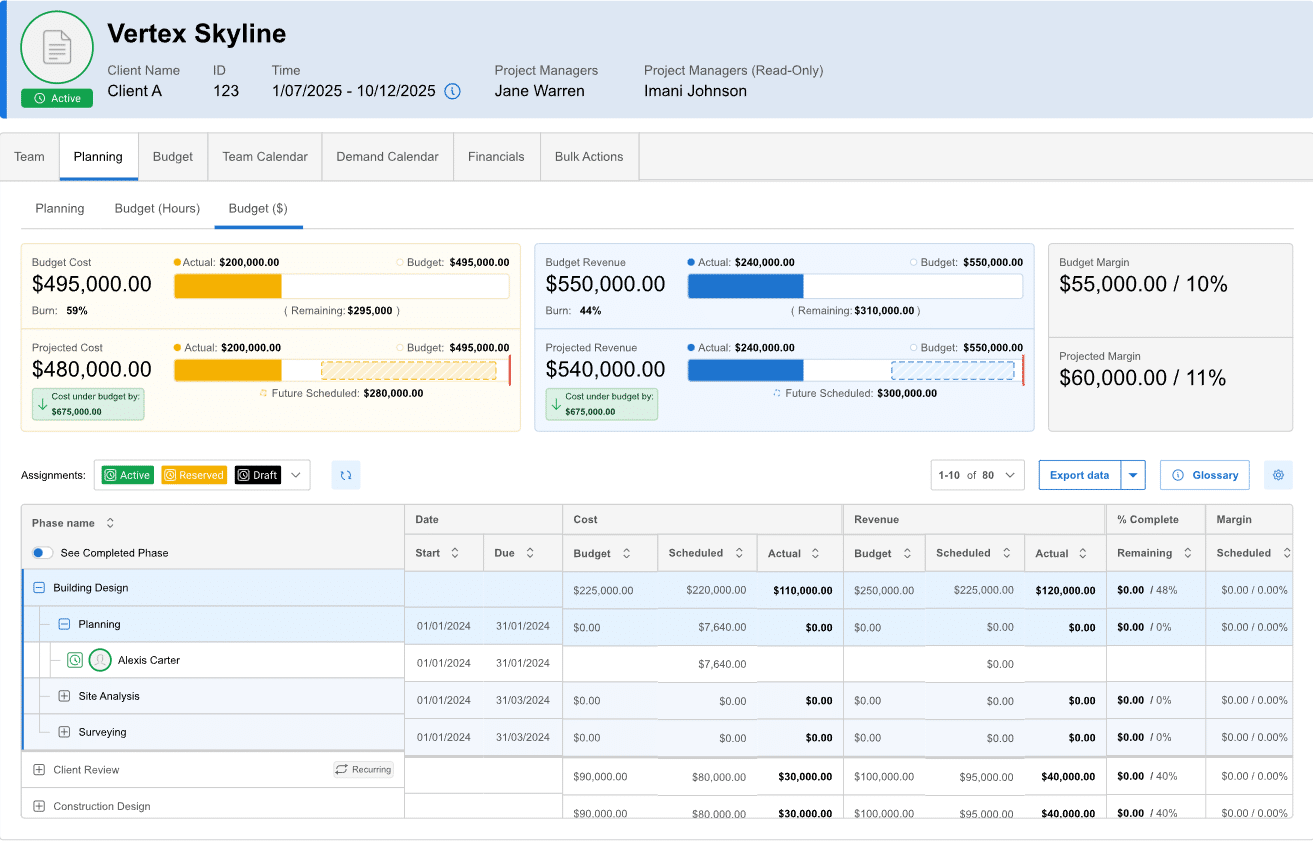
5. Workamajig: The Creative Agency Specialist
Workamajig specifically targets creative agencies and marketing firms, offering industry-specific features and workflows that generic platforms often lack. Choosing the right project management tool requires evaluating specific agency needs and workflow requirements.
Key Strengths:
- Creative workflow management and approval processes
- Media planning and campaign management tools
- Client relationship management with agency focus
- Traffic management and resource scheduling
- Financial management with creative industry metrics
- Integration with creative tools and platforms
Best For: Creative agencies, advertising firms, and marketing agencies requiring industry-specific workflows and creative project management capabilities.
Key Weaknesses:
- Difficult to use
- Lengthy onboarding time
- Lackluster customer support
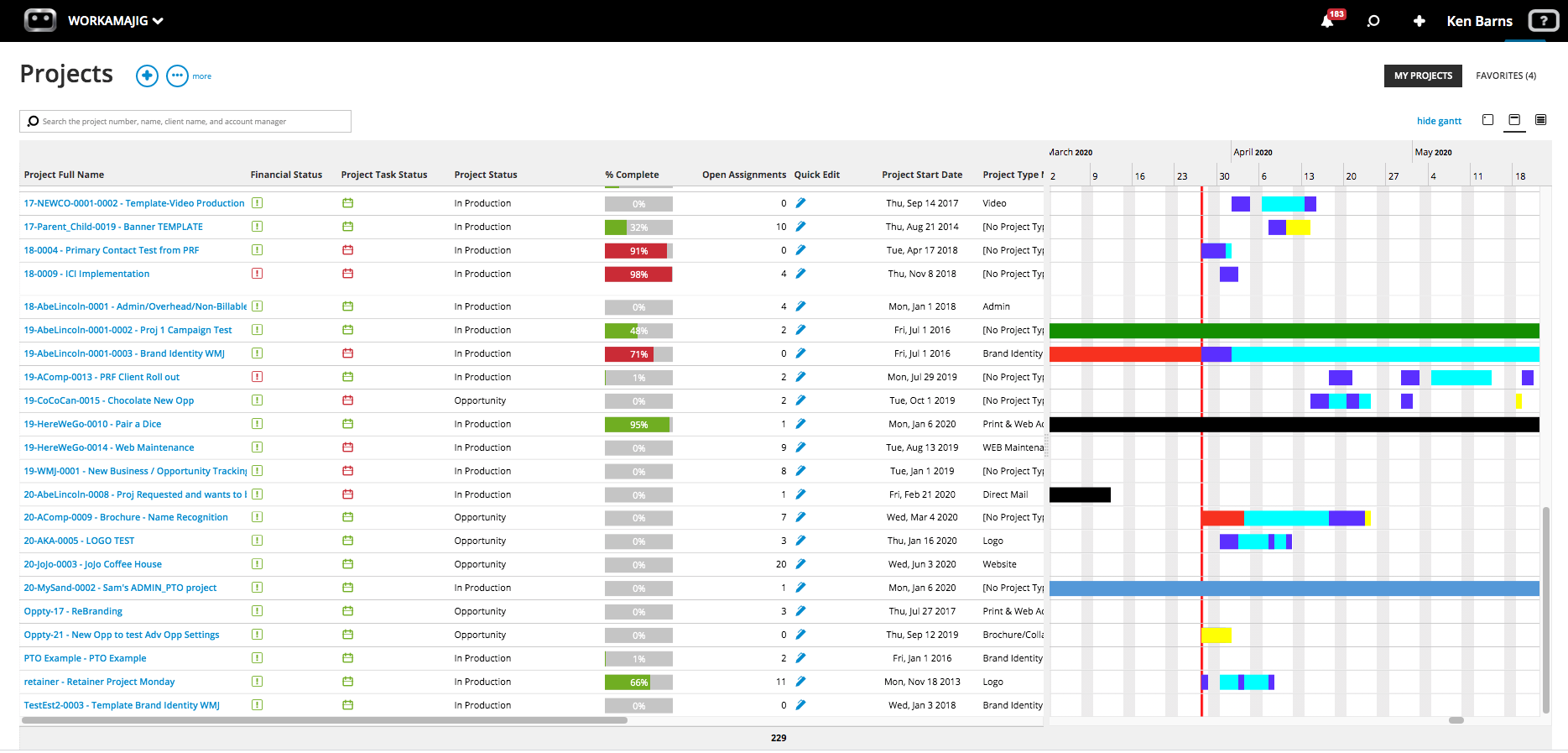
Measuring Success: Key Performance Indicators for Your New Platform
Implementing any new work management platform requires clear success metrics. The rapid growth of this market—the global workforce management software market size was valued at USD 9.43 billion in 2024 and is expected to reach USD 21.34 billion in 2033, growing at a CAGR of 9.5%—means agencies have numerous options, but success depends on measurable outcomes.
Financial Metrics:
- Reduction in project overruns (target: 25% improvement within 6 months)
- Increase in billable hour capture rate (target: 15% improvement)
- Faster invoice generation and payment cycles (target: 30% reduction in days sales outstanding)
- Improved project profitability margins (target: 20% improvement)
Operational Metrics:
- Project delivery timeline adherence (target: 90% on-time delivery)
- Resource utilization optimization (target: 75-85% billable utilization)
- Reduced administrative overhead (target: 20% reduction in non-billable admin time)
- Improved client satisfaction scores (target: 15% improvement in NPS)
Team Productivity Metrics:
- System adoption rate across teams (target: 95% daily active usage)
- Reduction in tool switching and context switching (target: 40% fewer applications used daily)
- Improved project visibility and communication (measured through survey feedback)
- Faster onboarding of new team members (target: 50% reduction in time-to-productivity)
Future Considerations: Preparing for the Next Evolution
The professional services technology landscape continues evolving rapidly. AI integration, advanced automation, and deeper analytics capabilities are becoming standard expectations rather than premium features. When selecting from these Accelo alternatives, consider how each platform is positioned for future enhancements.
Emerging Technology Integration:
- Automated time tracking through calendar and activity monitoring
- Predictive analytics for project success probability
- Advanced client communication automation
- Real-time collaboration tools for hybrid and remote teams
Scalability Considerations:
- Multi-entity and multi-currency support for growing agencies
- API capabilities for custom integrations and extensions
- White-label options for agencies serving multiple clients
- Advanced security features for enterprise clients
The most successful agencies will be those that choose platforms capable of evolving with their needs while providing immediate operational improvements.
Conclusion
The search for the right Accelo alternatives isn't just about replacing one tool with another—it's about transforming how your professional services organization operates in an increasingly competitive landscape. Whether you choose Ravetree's comprehensive all-in-one approach, Scoro's business intelligence focus, Kantata's enterprise capabilities, BigTime's time-centric model, or Workamajig's creative specialization, success depends on aligning platform capabilities with your specific operational needs and growth objectives.
The Top 5 Accelo Alternatives for Professional Services and Agencies presented here each offer distinct advantages for different types of organizations. The key is conducting thorough evaluation trials, involving key stakeholders in the selection process, and prioritizing solutions that can grow with your agency's evolving needs.
The future belongs to agencies that embrace integrated work management platforms capable of delivering operational excellence, financial transparency, and exceptional client experiences. Your choice of Accelo alternative will play a crucial role in determining whether your agency thrives or merely survives in the competitive landscape ahead.
Frequently Asked Questions
What makes a good Accelo alternative for professional services?
A strong Accelo alternative should provide integrated project management, time tracking, billing, and client communication tools specifically designed for professional services workflows, with the ability to scale as your organization grows.
How do I migrate from Accelo to a new platform?
Most modern alternatives offer data migration services and dedicated implementation support. Plan for a 1-4 month transition period with parallel system operation to ensure smooth migration of projects, contacts, and historical data.
Which Accelo alternative is best for small agencies?
For smaller agencies, Ravetree typically offer the best balance of comprehensive functionality and user-friendly design, with pricing models that scale appropriately with team size.
Can these alternatives integrate with existing accounting software?
Yes, all five alternatives offer integration capabilities with popular accounting platforms like QuickBooks and Xero, though the depth of integration varies by platform.
What's the typical ROI timeline for switching from Accelo?
Most agencies see measurable improvements in operational efficiency within 3-6 months, with full ROI typically achieved within 12-18 months through improved billable hour capture, reduced administrative overhead, and better project profitability.
Do these platforms support remote and hybrid teams?
All five alternatives are cloud-based and designed to support distributed teams with real-time collaboration tools, and flexible access controls for remote work scenarios.
How important is industry-specific functionality when choosing an alternative?
Industry-specific features can significantly impact adoption and efficiency. Creative agencies benefit from Workamajig's specialized tools, while consulting firms may prefer Kantata's enterprise features or Ravetree's comprehensive approach.
What should I consider for data security?
Evaluate each platform's data encryption standards, backup procedures, and compliance capabilities for your specific industry requirements.


